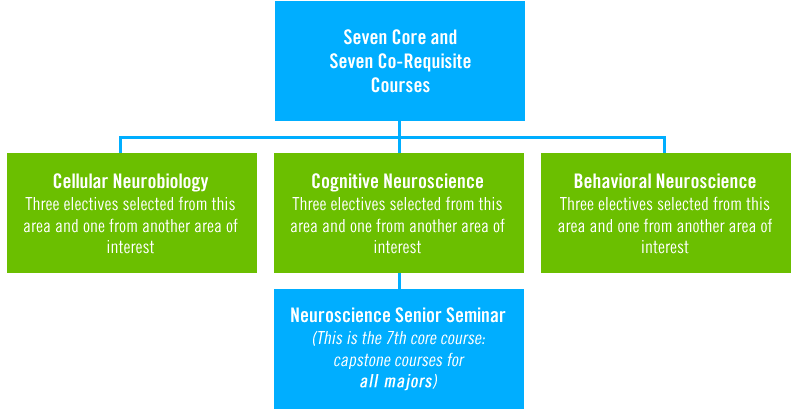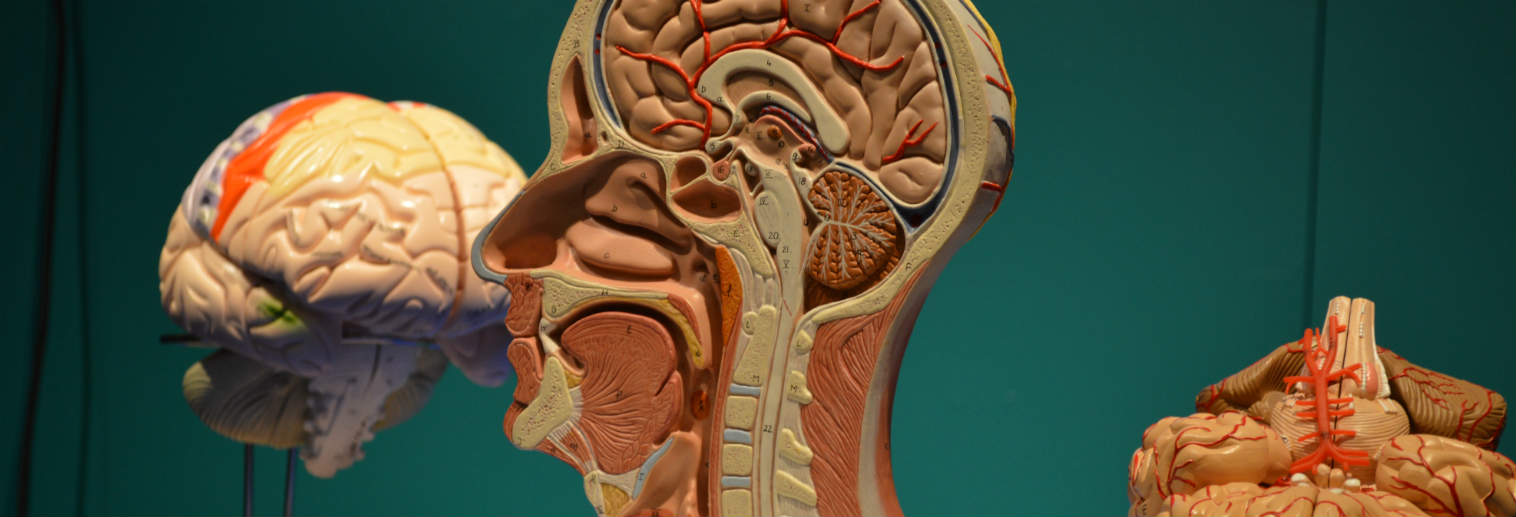Program of Study
Core Courses:
Seven courses serve as the core of this major.
- Biology 111. Foundations of Biology
- Neuroscience/Biology 263. Neuroscience.
- Psychology 120. Introduction to Psychology.
- Psychology 211. Psychological Research Methods.
- Psychology 212. Learning from Data.
- Neuroscience 367. Introduction to Neuroscience Methodology.
- Neuroscience 373. Neuroscience Seminar.
* BIOL 110.2. Bioscience Seminar is strongly recommended for incoming first year students.
Summary of the Neuroscience Major:

Co-Requisites:
The following seven co-requisites are required for this major. Please note: Organic Chemistry courses (Chemistry 211-212) are required for those students pursuing an emphasis in Cellular Neurobiology or Behavior Neuroscience. Computer science courses (CS120-121) are required in lieu of Organic Chemistry for those students pursuing an emphasis in Cognitive Neuroscience.
- Chemistry 113-114. General Chemistry.
- Chemistry 211-212. Organic Chemistry. (For Cellular Neurobiology and Behavioral Neuroscience Tracks)
- Computer Science 120. Computer Science I. (For Cognitive Neuroscience Track)
- Computer Science 121. Computer Science II. (For Cognitive Neuroscience Track)
- Math 170. Analytical Geometry and Calculus I OR Math 106 plus Math 166. (Fulfills F2 requirement)
- Physics 109-110. Introductory Physics for the Life Sciences.
Ethics Course Recommendations:
Due to the increased awareness of ethical implications associated with scientific research (for example, stem cell research, cognitive enhancers), it is of interest to educate the Neuroscience students in the field of ethics. Therefore, courses such as Ethics (Philosophy 222, M3 requirement) or Ethics for the Public's Health (PHIL 234, U2 requirement) or Medical Ethics (PHIL 259, U1 requirement) are highly recommended.
Electives:
This Neuroscience major is designed to provide students with an opportunity to focus on one of three areas of emphasis: Cellular Neurobiology, Behavioral Neuroscience or Cognitive Neuroscience.
They should select three of the following electives from one area of emphasis and one from a different area of neuroscience interest.
a) Cellular Neurobiology
- Biology 210. Genetics.
- Biology 266. Cell and Molecular Biology
- Biology/Chemistry 328. Biochemistry II.
- Biology 342. Animal Development.
- Biology 350. Human Physiology.
- Biology 365. Advanced Genetics.
- Biology 398. Human Anatomy
- Neuroscience 381-384. Independent Study
- Neuroscience 386-389. Field Study
- Neuroscience 400-401. Honors
b) Behavioral Neuroscience
- Biology/Psychology 250. Animal Behavior.
- Psychology 320. Mind and Brain.
- Psychology 335. Applied Behavior Analysis
- Psychology 362. Psychopathology
- Neuroscience 381-384. Independent Study
- Neuroscience 386-389. Field Study
- Neuroscience 400-401. Honors
c) Cognitive Neuroscience
- Computer Science 260. Artificial Intelligence.
- Philosophy/Psychology 251. Philosophy of Psychology.
- Psychology 315. Cognitive Psychology.
- Psychology 320. Mind and Brain.
- Psychology 376. Seminar in Experimental/Cognitive Psychology.
- Neuroscience 381-384. Independent Study
- Neuroscience 386-389. Field Study
- Neuroscience 400-401. Honors
Appropriate advanced courses offered by LVAIC institutions may be substituted for the above mentioned electives with prior approval from the Neuroscience Program Director.

